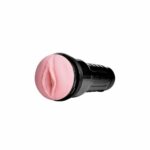As the weather heats up, it’s natural to take a lot of your indoor activities outside. Much like lunch at home seems way more appealing as a picnic, sex can become even more exciting when it happens al fresco.
And really, underwater sex makes perfect sense. The pool/hot tub/lake/ocean aren’t living up to their natural potential if they don’t serve as covers for some interesting below-the-belt activities. But, having sex in water isn’t without its risks.
Underwater sex can encourage you to try new positions, relax, and have more fun. However, it also presents things for you to be concerned about, such as waterborne bacteria and vaginal dryness.
Depending on the body of water you’re in, such as the ocean, a lake, or a chlorinated or ozonated swimming pool, you may also run the risk of irritating your vulva and vaginal walls and developing a rash.
Underwater Sex Precautions

1. In general, public bodies of water are pretty dirty.
Yes, pools have chlorine, but they can also have a lot of bacteria. One of the most common public-pool health issues is improper pH levels, which can make it harder for disinfectants to do their jobs. Same goes for hot tubs. The outlook isn’t much better if you and your partner are looking to, uh, get more in touch with nature. Lakes and oceans are by far the dirtiest.
With all of that (kind of downer information) said, you can definitely still have amazing sex in water. It’s theoretically possible you’ll contract some random water-borne infection or disease, but the threat is basically negligible.
2. Water can wash away your natural lubrication.
It’s counterintuitive, but having sex in the water can be tougher on your vagina than having it in a bed. People think water is like vaginal lubricant, but they’re completely different.
When something’s plunging in and out of your vagina underwater, some of that water will naturally find its way inside you, washing away your lubricating vaginal secretions, and potentially drying you out. That lack of lubrication can make you more prone to micro-abrasions.
Those are little tears that can sting when they come into contact with something irritating, like, say, chlorine or salt water. And disinfectants like chlorine are caustic, so even if you don’t get micro-tears, you can end up with an irritated vagina or one with a skewed pH, potentially leading to bacterial vaginosis or a yeast infection.
Pro-tip: If you happen to have some within reach, lube can come in very handy when you’re having sex in water.
3. Lube can combat the drying aspect of water—but all lubes are not created equal.
Condoms can function A-OK in the water, so use them if you need to. But without proper lubricant, water-induced dryness and friction can make a condom more likely to break.
If you somehow managed to have some lube on hand for this outdoor adventure, silicone would be your best bet. Oil-based lubes can damage condoms, and water-based ones can wash away too quickly in this scenario.
4. Yes, you can absolutely get pregnant while having underwater sex.
If someone ejaculates inside of you underwater and you’re not using contraception, you can get pregnant. The semen doesn’t wash away or anything like that, even though some water can enter the vagina during intercourse.
5. That doesn’t mean you can get pregnant just because someone ejaculates into the water you’re in.
Everyone’s heard rumors about people getting pregnant after swimming in a pool or hot tub where someone ejaculated. Thankfully, this myth doesn’t have any weight. If there’s no physical contact and there’s an emission of semen into the water, we can’t fathom how that would lead to pregnancy. The semen would have to be very close, or there would need to be some manipulation of the female anatomy to insert the semen.
They might be known as swimmers, but they’re not able to do the backstroke into your vagina.
How to Enjoy Sex Underwater
There are a lot of reasons not to have sex underwater. But if you’re careful, you can still have a safe and romantic time. Try some of these tips to stay healthy and safe while having underwater sex:
- Find privacy: Don’t break the law while you have sex in a pool. Use your own private property to enjoy underwater sex.
- Use the right lube: Silicone-based lube won’t wash away like water-based lube, so you can ensure less friction and more pleasure.
- Be smart in the water: If you or your partner aren’t strong swimmers, stay close to the shore. Ensure that you both have swimming knowledge if you are in the ocean, in case of an undercurrent or if one or both of you get swept out too far.
- Inebriation: Drowning is still a concern when you spend any amount of time in the water, so be sure you aren’t having sex in water after drinking.
- Use protection: Underwater sex does not protect you from STIs or pregnancy, so be sure to use condoms and take extra precautions. Chlorine or hot tub water can make condoms weaker, so check for breakage when you’re done.
- Trade up your fantasy of doing it in a body of water with doing it by a body of water. Compromise! Having sex by the water (like on the beach) is better than actually being in the water. Be sure to have towels nearby if you decide to move the sexcapades to land. When you get it on next to the water, you still get the sexy aesthetics as if you were boning inside the water, but just slightly better and comfier.
The Bottom Line
If you follow these safety tips and guidelines, you can still have amazing underwater sex. Talk with your partner and allow each other to be honest. Having sex underwater can be scary, and one of you may not be as ready as the other. Take things slow and try many different positions. Use foreplay to start, and go at your own pace.





